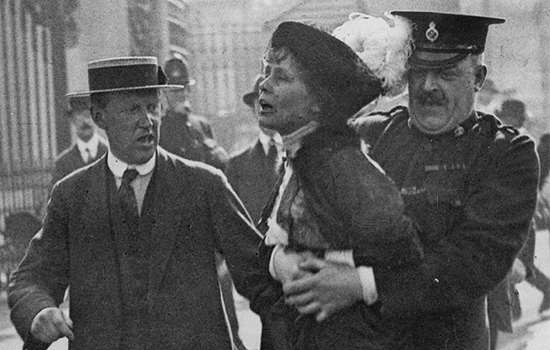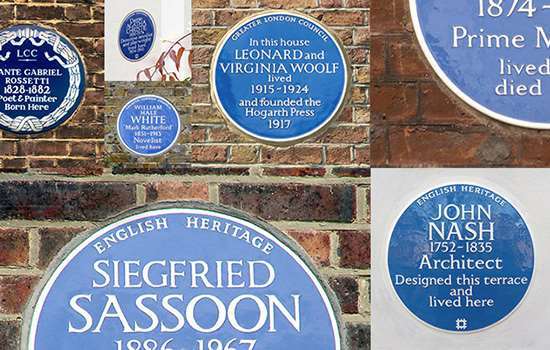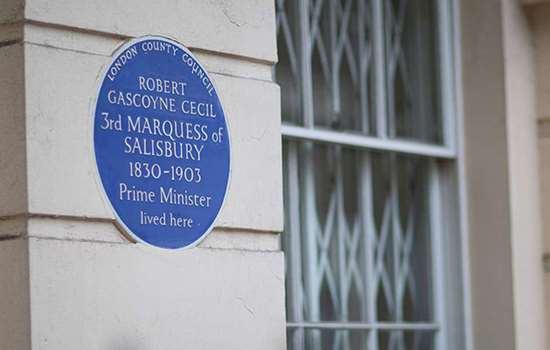NOVELLO, Ivor (1893-1951)
Plaque erected in 1973 by Greater London Council at 11 Aldwych, Covent Garden, London, WC2B 4DG, City of Westminster
All images © English Heritage
Profession
Composer, Actor-Manager, Playwright
Category
Music and Dance, Theatre and Film
Inscription
IVOR NOVELLO 1893-1951 Composer and Actor Manager lived and died in a flat on the top floor of this building
Material
Ceramic
The composer and actor-manager Ivor Novello is most famous for his West End musical productions Glamorous Night (1935) and Dancing Years (1939). He lived for 38 years at 11 Aldwych in Covent Garden in a top floor flat above the Strand Theatre (now Novello Theatre).
A LIFETIME IN THEATRE
Born in Cardiff as David Ivor Davies, he developed a strong interest in music and the world of theatre from his mother, Clara Novello Davies, who taught singing. In 1927 David changed his name to Ivor Novello by deed poll, having already begun to make his mark with works such as the 1914 song Keep the Home Fires Burning (Till the Boys Come Home). He made his debut as an actor in the silent film The Call of the Blood (1920), and enjoyed subsequent success on stage and screen. He performed in Alfred Hitchcock’s The Lodger (1926) and the 1924 play The Rat, which he co-wrote.
Novello was best known for his succession of brilliant musical shows, the bulk of which were composed with Christopher Hassall as lyricist and starred Novello himself. They included Glamorous Night (1935), Careless Rapture (1936), The Dancing Years (1939) and King’s Rhapsody (1949). The latter also starred the actor Bobbie Andrews, Novello’s life partner who he first met in 1916.
‘THE FLAT’
Novello and his mother settled at 11 Aldwych in 1913. It was part of a block built in 1905 to the designs of WGR Sprague and situated adjacent to the Waldorf Hotel, on the corner of Catherine Street. The flat remained Ivor’s London residence until his death here at the age of 58 in the presence of Bobbie Andrews.
Novello was noted for his hospitality. He entertained regularly both in London and at his country home, Redroofs, near Maidenhead in Berkshire. ‘The Flat’, as it was known to theatrical London, was the setting for a number of sparkling parties, which were ‘a signal for general rejoicing’. In his memoirs, Noël Coward described how it was accessed either by an ancient and unreliable lift or by seven long flights of stairs.
The big room of the flat had a raised dais running across one end. Upon this, there were sometimes two, at other times no grand pianos . . . The high spots of the parties were reached in this room. Charades were performed, people did stunts . . . Visiting musicians were subtly lured to the piano. Native musicians rushed to it.
Names written in Novello’s guest books include Douglas Fairbanks Junior, Paul Robeson and Vivien Leigh. The Strand Theatre is now aptly known as the Novello Theatre.


